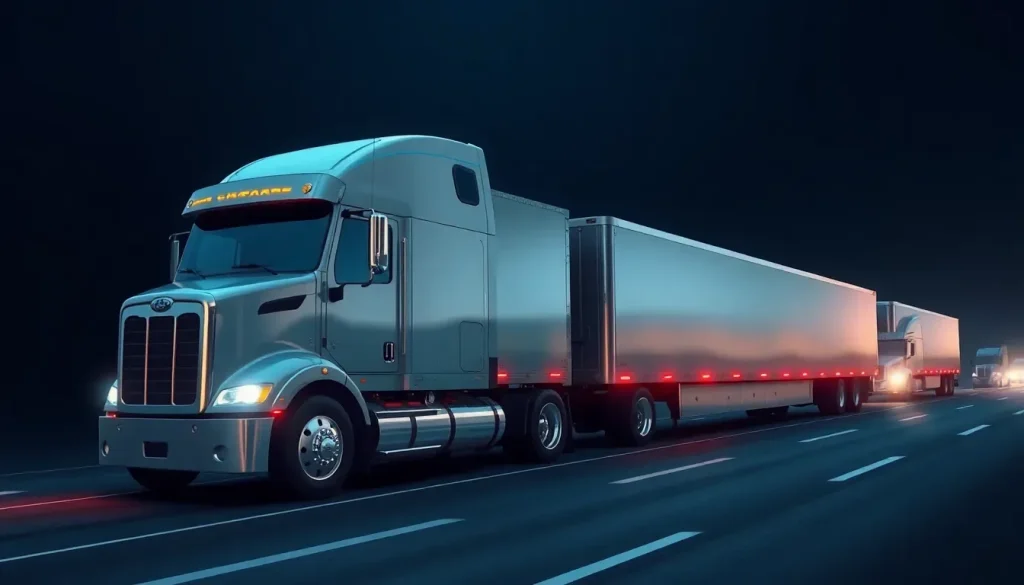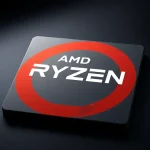How Smart Trailers Can Transform the Future of Trucking

The trucking industry is on the cusp of a major transformation, driven by advancements in technology and a growing emphasis on operational efficiency. As we venture into this new era, the role of trailers is evolving from being mere vessels for cargo to becoming integral components of smart transportation systems. This shift not only promises to enhance reliability but also to redefine the entire logistics landscape.
The Importance of Reliability in Connected Fleet Assets
As I engage with Class 8 fleets and freight operators across various sectors, it's clear that smart trailer technology is gaining traction as a strategic asset. These connected trailers provide real-time data on their health, location, and cargo status, effectively eliminating blind spots that can hinder operational efficiency, safety, and reliability. By integrating trailers as active participants in the freight ecosystem, companies can make more informed decisions that enhance overall performance.
Reliability is the cornerstone of successful fleet operations. Companies that handle sensitive medical shipments or high-value consumer goods cannot afford any disruptions. The traditional approach of over-maintaining equipment to mitigate risks adds unnecessary costs. Thankfully, smart trailer systems now offer insights that allow for early intervention, preventing costly breakdowns that could damage cargo, compromise safety, and tarnish brand reputation. In essence, reliability transcends mere performance metrics; it is a tangible return on investment that connected assets deliver.
One of the most effective strategies a company can adopt is the integration of transportation operations, fleet maintenance, and IT departments. Historically, these teams have operated in silos, which can stifle innovation and complicate technology deployments. For smart trailer telematics systems to thrive, collaboration among software engineers, vehicle technicians, and operations leaders is essential. Fleets that foster this collaborative culture and develop a unified data strategy will find themselves at a competitive advantage as technology evolves.
Moreover, smart trailer technology is revolutionizing maintenance protocols. Instead of relying on arbitrary schedules based on mileage or time intervals, maintenance can now be driven by actual wear and tear. This shift significantly reduces labor costs and waste, leading to increased uptime and extended asset life. The transition to data-driven maintenance is not just a future goal; it is already being realized in forward-thinking operations.
Transforming Data into Actionable Insights
While data collection is a fundamental aspect of modern fleet operations, it is not the ultimate goal. Fleets are currently testing a range of sensors for tire pressure, automatic tire inflation, ABS faults, brake wear, wheel-end temperature, cargo conditions, and door status. However, the real challenge lies in converting this data into actionable insights. By utilizing platforms that aggregate and analyze this information, maintenance teams, drivers, dispatchers, and procurement can make better-informed decisions that enhance reliability and performance.
The rise of autonomous trucking will greatly benefit from this level of trailer intelligence. Unlike human drivers, who can sense issues like a tire blowout or overheated brakes, virtual drivers depend on comprehensive situational awareness. Smart trailers provide this vital information, enabling autonomous systems to operate safely and effectively by ensuring real-time visibility into all critical components.
The freight industry is already evolving with the advent of technologies such as regenerative e-axles and electrified landing gear. Additionally, AI-driven diagnostics are emerging, allowing for predictive maintenance that can identify potential failures before they occur. These innovations hinge on a fully connected vehicle ecosystem that prioritizes the role of trailers in transporting goods efficiently.
Smart trailers serve as the missing link in the future of trucking. They are not only essential for enhancing operational efficiency but also act as the foundation for the next wave of innovation in freight transportation.
Challenges Facing the Trucking Industry
As we look forward, several challenges confront the trucking industry that must be addressed to fully realize the potential of smart trailer technology. A few notable issues include:
- Driver Shortage: The industry is grappling with a significant shortage of qualified drivers, which impacts capacity and service reliability.
- Regulatory Compliance: Adhering to evolving regulations on emissions, safety, and operational practices poses challenges for fleets.
- Technological Integration: Integrating new technologies into existing systems can be complex and resource-intensive.
- Cost of Innovation: Investing in advanced technology can be prohibitively expensive for some fleets, especially smaller operators.
- Cybersecurity Risks: As fleets become more connected, they are also more vulnerable to cyber threats and data breaches.
The Role of AI and Automation in Trucking
One of the most significant discussions in the industry revolves around the potential replacement of truck drivers by AI and automation. While there are concerns that autonomous vehicles could displace human jobs, experts argue that technology is more likely to augment rather than replace human drivers. For instance, automated systems can handle repetitive tasks, allowing drivers to focus on more complex decision-making. This dual approach can lead to increased safety and efficiency on the roads.
Incorporating AI into fleet operations offers numerous benefits, including:
- Enhanced Safety: AI can analyze vast amounts of data in real time, identifying potential hazards and alerting drivers promptly.
- Improved Routing: AI algorithms can optimize routes based on traffic patterns, weather conditions, and cargo requirements.
- Predictive Maintenance: AI can help predict equipment failures before they occur, reducing downtime and maintenance costs.
- Driver Support: AI-powered systems can assist drivers with navigation, communication, and load management.
The integration of these technologies is not merely a trend; it reflects a fundamental shift in how the industry operates. To remain competitive, trucking companies must adapt to these changes, embracing innovation while addressing the challenges that arise.
What to Expect in the Trucking Industry by 2025
Looking ahead to 2025, the trucking industry is poised for significant change. Experts predict several developments that will shape the future landscape:
- Widespread Adoption of Smart Trailers: As more companies recognize the value of connected assets, smart trailers will become standard in fleet operations.
- Increased Use of Autonomous Vehicles: While fully autonomous trucks may still be a few years away, hybrid models that combine human and automated driving will likely emerge.
- Focus on Sustainability: Environmental regulations will drive the adoption of greener technologies, such as electric and hybrid trucks.
- Data-Driven Decision Making: Companies will increasingly rely on data analytics to inform fleet management and operational strategies.
The momentum towards innovation in the trucking industry is undeniable. As companies invest in smart technology and adapt to changing market demands, the future of freight transportation looks promising.
For a deeper dive into the intersection of technology and trucking, check out this insightful video on AI and self-driving trucks.




Leave a Reply